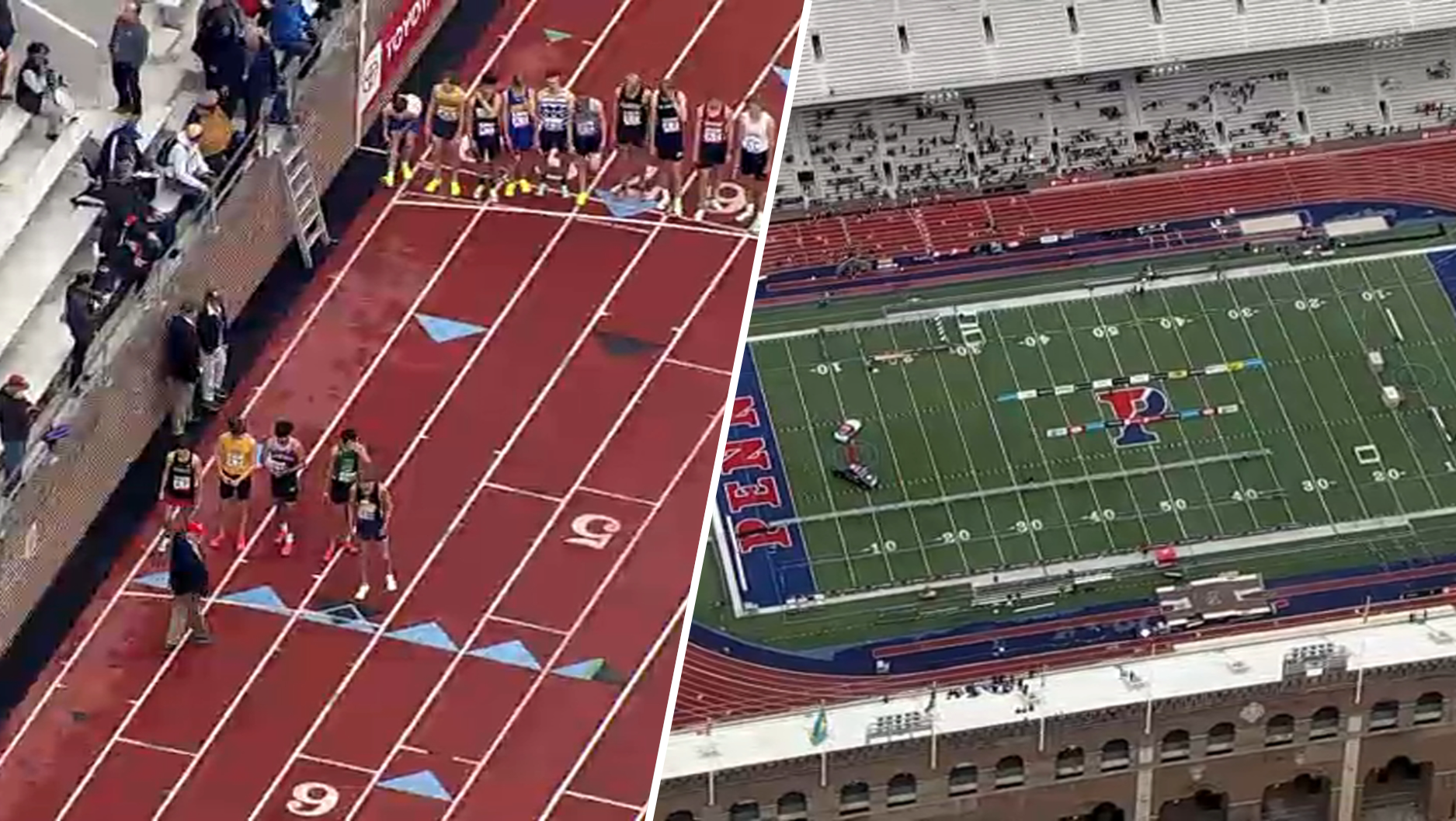Sara Director has a bright future ahead of her here on earth, but the 26-year-old — originally from the Philadelphia suburbs — is competing for an opportunity to leave that all behind for a one-way ticket to Mars. Upon discovering she made it to the third round of candidates in the Mars One mission, there’s a 25% percent chance that Director will spend the rest of her life on the Red Planet, leaving family and friends behind.
The Netherlands-based nonprofit wants to establish a human settlement on Mars in the next ten years by picking 24 candidates from a highly-selective pool of people. The quest initially garnered the interest of more than 200,000 applicants. But the experts behind Mars One are not only searching for people ready to live and die on Mars, but also for reality stars whose lives would be televised as they unfold on the planet.
Director made the cut of 100 finalists, with only one round left before potential astronauts are selected to begin a decadelong training session to prepare for takeoff.
In your Mars One application video you mentioned that traveling to Mars is something you always wanted to do. What made you decide you wanted to participate in the Mars One mission?
So I actually saw a website detailing this mission, and I read the application and what they were looking for in applicants and I realized that this actually applies to me, and that if I didn’t apply and give it my best shot I would regret it for the rest of my life. I knew that I had to give it my best go, and so far it’s been working out perfectly.
Right now you're the project manager for a computer software company and you also have a degree in Biology. Is there a particular trait or talent you possess that you think would be valuable to the mission?
I have always had a sort of wide variety of interests and skills, so my versatility in that sense has always kind of been hard for me here, because I can’t use that variety of skills here. Most things require specializations, so that is something I’d like to take advantage of about myself. Another thing is my adaptability in terms of how personable I am, and that probably would be the best thing I could contribute. I have really great communication skills, and I know how to use to those communication skills to have really healthy interpersonal relationships. I think that’s one of the key things to finding people who can spend the rest of their lives together in a tin can.
Local
Breaking news and the stories that matter to your neighborhood.
Since you won't be able to ever return to Earth, how are you preparing for the idea that you could possibly spend the rest of your life on Mars?
Well, that’s something that will be hard, definitely. We know we’d be able to send messages and receive messages too from our friends and loved ones. My understanding of this mission is that you are in teams of four, and those teams need to be family, basically. They need to be so tight to depend on each other to survive. So my hope is that over the next ten years of training, these groups will be a new kind of family. You know people come into your life and they leave — there are people who you choose and those you’re stuck with.
Besides family and friends, what would you miss the most about home?
Probably food actually. So much of what we have here like books, movies and art we can transmit those things there digitally. I know that basically we will be eating a vegetarian diet. So bacon, we aren’t going to have that on Mars. That’s a food I’m definitely going to miss.
How did your parents react to the idea of you leaving, never to return?
Everyone has been very, very supportive. My dad actually found that Mars One website and emailed it to me. He is actually very jealous, you know he could not be happier because I think if he were younger he would be the one to apply. My mom is less enthusiastic, but she’s open about the fact that she would be very, very sad to goodbye to me. Even then though, she is very supportive.
You seem to have a good life here, but are you bored with life on Earth?
I’m definitely not bored in any sense or way, I actually have a wonderful life here and I would definitely be sad to leave it if I found out I had to leave tomorrow. That being said, since my life here is so I amazing there has to be even something more amazing for me to want to give that up. So really what it is, is that I feel that opportunity is just so … so unbelievably amazing. It’s such a meaningful contribution to the entire progression of the human race. It’s not just an opportunity that most people get.
Since the mission will be televised, do you like the idea that there is a televised program attached to the mission?
I think it’s great. I mean I think it’s a wonderful way to really unite humanity around the single goal basically. Let’s be honest, that’s just very, very difficult. And I think that, well I do hope that my friends and family will watch how things unfold on Mars. One thing I don’t want to do while I’m here and going through this process is sort of be living with one foot out that door, and I also don’t want the people who would be left behind to do the same. But it’s important that our lives be televised — and it’s not like we’re leaving Earth because we hate Earth. We’re leaving for the new experience.
According to an MIT study, there is a possibility that the first crews traveling to Mars will suffocate in 68 days. Does that hinder your desire to participate?
I think it’s great what the students were trying to do because we absolutely need to have those detailed calculations. But I believe they made some assumptions about the initial calculations which were not correct. I mean it’s an interesting exercise, but it’s not accurate enough that we need to call off the mission.
What will you be doing on your seven-month-long trip — the time you're expecting it will take to get from Earth to Mars ten years from now?
Mostly my understanding of is that we will be exercising. In transit, the biggest injury will be muscle atrophy and bone density loss. We’re going to need to keep our bodies in shape, which is something that NASA already struggles with. So we’re going to be exercising, and I expect a lot of it over the seven months.
The goal of the mission is to establish human settlements. How will the crews be working toward creating a human community on Mars?
It’s going to be a lot of work to set up the habitat, but once that’s done is the idea that to basically live our lives. There’s going to be a lot work, because we’re not just going to set up our own habitat but we’re also going to be expanding because there’s going to be the teams of four coming every two years. So we’re going to make to more space for more people and really start using native materials to replace materials we’ve brought us. So the idea is to make the settlement bigger over time and independent over time. But other than that, we’re going to create our own society. We’ll be doing research and finding data, and then have group dinners of Sunday night. Maybe I’ll paint and read books, and sort of live out our lives.



